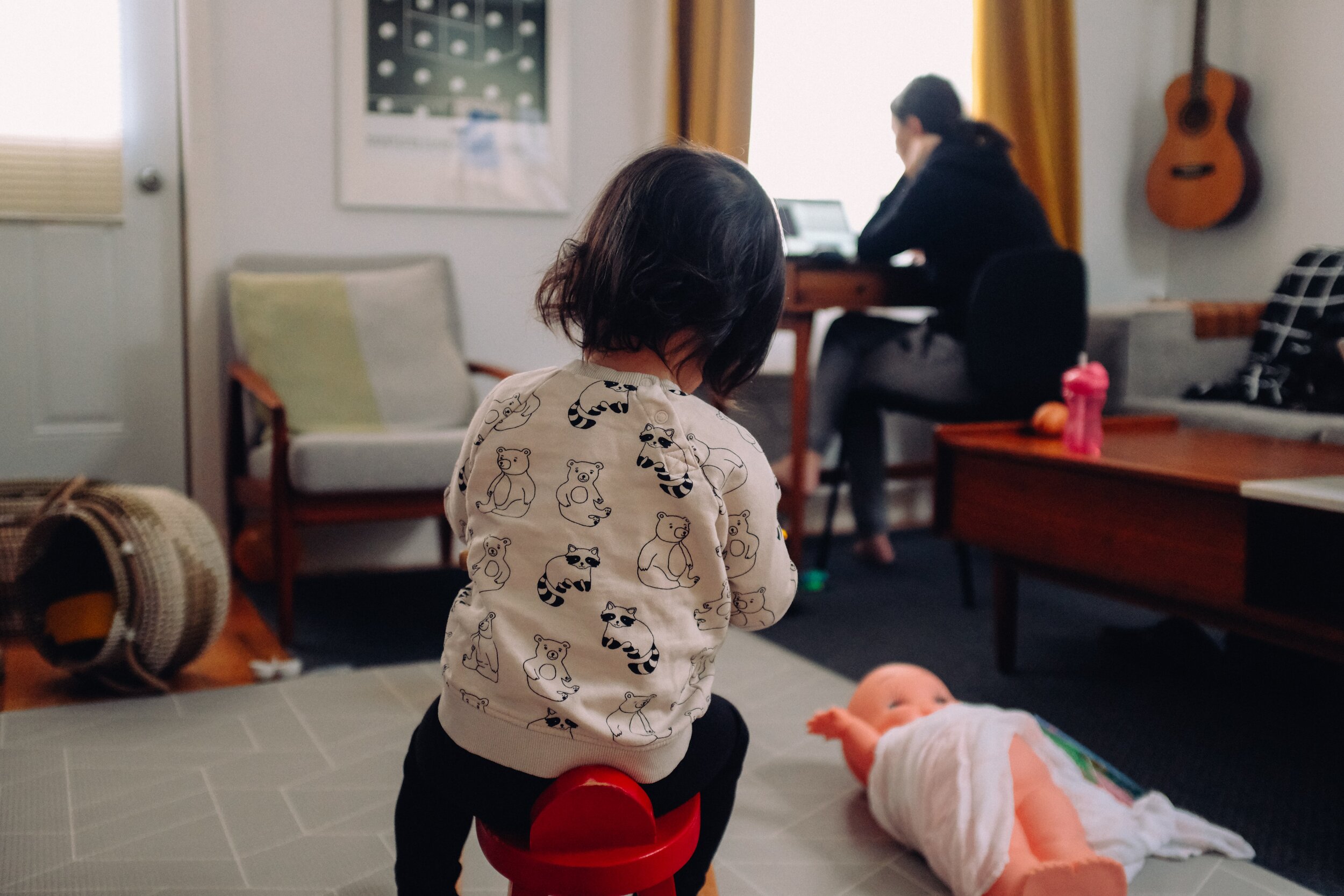Photo by Charles Deluvio on Unsplash
As a devoted godmother and aunt with a deep interest in early childhood education, I was so glad for the opportunity to visit my sister and her family, As a researcher, I was also curious about how it would feel to work full time from her home during COVID, with three children under six learning from the same home.
What I learned in this micro-auto-ethnography was how distinct my social identities of “UX research professional” and “aunt” are. When I was in the middle of a complex conversation with a team member, my two little nephews snuck mischievously into my room. And although I knew I could introduce them to my colleague and then calmly talk with them, instead I froze up and tried to ignore them. Why?
As I pondered this question, I realized we need to articulate a new set of norms to help caregivers feel freer and more comfortable with the strange experience of previously separate identities colliding in the same space, the same conversation. When we all know we can count on our colleagues’ understanding and grace, we can relax into our new world in which work, kids, and life all co-exist within the same four walls.
Let’s all create a supportive environment for our colleagues and clients with young children at home by committing to the following credo to support parents:
I expect I’ll see a child now and then while on video calls for work, including during more “formal” conversations and meetings.
I will look forward to the opportunity to meet the members of my colleagues’ families and act as a respectful guest in their homes.
I will remember that parents may find it uncomfortable to combine their personal and professional identities and I will respect their boundaries.
I respect my caregiving colleagues’ need for privacy and understand if they don’t have their camera on or share about their families.
I welcome my caregiving colleagues to let me know when they have needs related to parenting. I know it’s normal for a colleague to say “I have a parenting need to attend to now” — and that these are likely to crop up unexpectedly.
I will remember that the attentional capabilities of children are still developing and that it is normal for them to need adult guidance while they work, play, or learn.
I embrace the adaptations that allow my colleagues to attend to the important learning needs of our future leaders, their children, and trust their commitment to our work.
I will honor my colleagues’ family schedules and sleep time, accounting for time zone, and work to help them enjoy a high quality of life, both in the immediate term, as well as by developing systems that better facilitate this for our team ongoingly.
I will strive to create value asynchronously when possible, and schedule live meetings mindfully, bearing in mind how these can add complexity for families.
I will embrace the spirit of the time and the invitation to welcome innovation and change.
You can show your support by sharing this credo with your teams, and ensuring that the parents you work with know they have your support and empathy.
I’m looking forward to gaining more comfort with my own identity as a professional who’s also a loving friend to very young people. And I’m looking forward to learning more about how companies can best serve the needs that families are facing during this time — and beyond.
